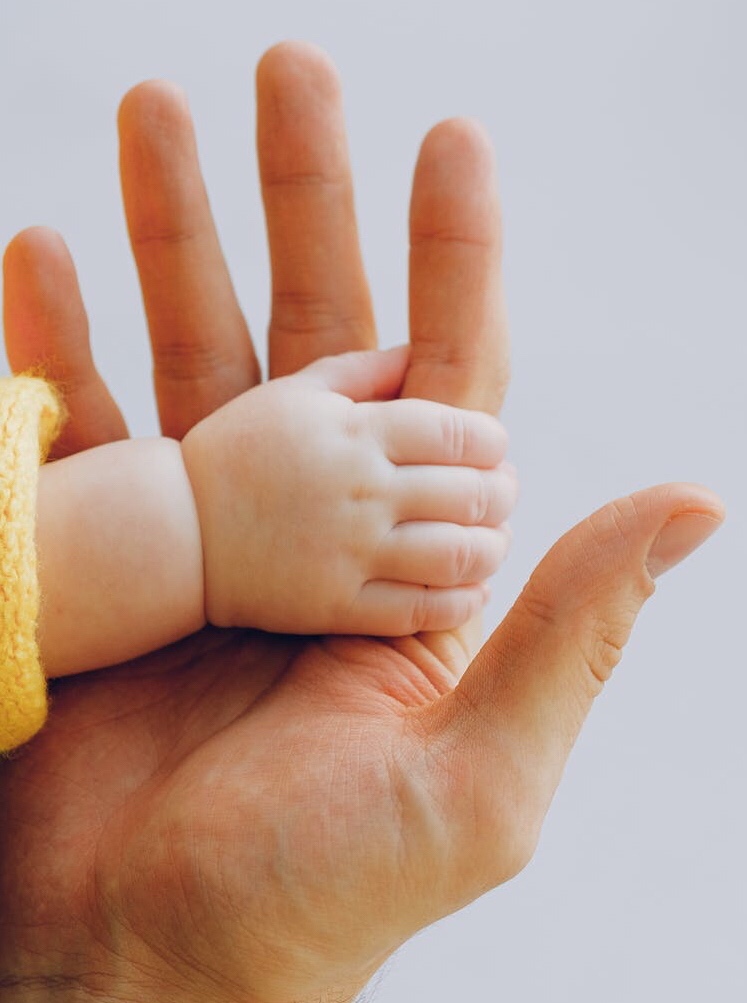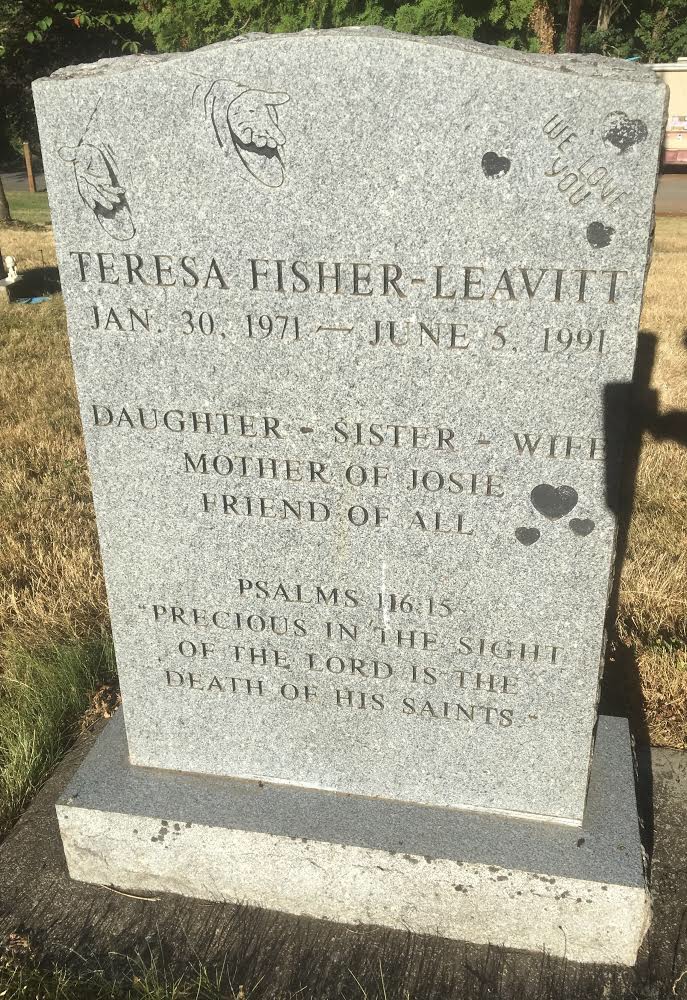I was 19 years old. It was finals week during my sophomore year of Bible college. My beloved youth pastor’s wife from my hometown called my dorm and delivered a devastating blow: my bestie, Teresa, had died a few days after giving birth to her sweet baby, Josey. She was 20 years old. Josey was just 7 days old.
Numbly, we (my young adult friends and I), sat through the memorial service. We listed to our youth group theme song, “Friends are Friends Forever” by Michael W. Smith. We looked at the casket, holding the lifeless body of my beloved Teresa. We wondered why. This is when I really learned how cruel the world could be. This is when my pocket of grief really had a deep sorrow to carry. And this is when I began to come awake to the reality that there will always be deep sorrows to carry, from now until the day I die.
I remember attending the gathering at Teresa’s grandmother’s house after the graveside ceremony. I held her baby and listened to the older adults’ words swirling around my head as Josey slept on my bosom. I kissed her sweet crown and smelled that distinctive baby smell and wondered whose bosom Josey would sleep on tomorrow. How would she make the abrupt switch from breast milk and adjust to drinking formula? How would she adjust to…anything? Experiences like these were my introduction into the land of grief. A place no one wants to go and most of us end up there like refugees in an unanticipated country.

Thirty years later, I still have a grief pocket, but now, I am working in a field that is immersed in grief, so I carry it differently. As a hospice Chaplain, I am around grief all day every day. I have found some wisdom in its familiarity. There is something trustworthy about grief: its ferocity is always connected to deep love. Its devotion is stunning. It is predictable in its wild unpredictability. And although each person arrives at grief’s door differently, we are all somewhat acquainted with its basic instinct, its most base drive: to purge out the pain and return to the love that birthed it.
In the lectionary this week, we read Psalm 23. I can see why people memorize this Psalm; it is filled with beautiful imagery and words of companionship for a lonely journey. “He makes me lie down in green pastures. He leads me beside still waters. He restores my soul” (v. 2). Later on, the psalmist says, “Even though I walk through the valley of the shadow of death, I will fear no evil, for you are with me; your rod and your staff, they comfort me” (v. 4). I oftentimes read this Psalm at the bedside of (Protestant) patients and families, because it feels like an internal companion a person can take with them as they cross over. Words of comfort for the journey.
Recently, I was listening to a podcast suggested by a friend called “Griefcast.” In each episode, the British host interviews someone who has lost someone dear to them, and they share the story of their loss. In this particular episode (episode 119), she was talking to a comedian who had lost his mom recently. Before she died, his mom did NOT want assistance of any kind – and he felt she needed more medical attention. The host asked something like, “How do you deal with it when you want to offer more help but your parent doesn’t want it?” I thought it was a great question, and he gave a great answer: “You have to accept their vision [of the world].” This was such good insight. If Mom is independent and doesn’t want help, I can only force so much help on her before it becomes intrusive and annoying. Admittedly, I’m stellar at accepting others’ visions for the world and their losses, but what about my own?
So, today, I am thinking about what is my own vision regarding grief? What is my orientation to grief? I’ve come to the conclusion that death is just as mysterious and “unknowable” as birth. It’s overwhelming, filled with physical sensations that are new and scary, and it’s largely navigated alone. By “alone,” I mean no one arrives into this realm with me (unless I shared the uterus with a sibling), and no one leaves this realm alongside me. Both must be navigated alone. AND both are made immeasurably more bearable if someone is Earth-side offering words of comfort as we transition into – or, in this case, out of – this sphere. Hence, Psalm 23.

At this juncture, I’d like to introduce you to Teresa. I will never forget her spark, her luscious eyelashes, her contagious laugh, her friendship. And her dear baby Josey is now 30. We are friends on social media, and I always feel a twinge of sadness that she grew up without her burst-of-life mama. But she’s made it on her own. She’s a parent herself now, and her grief pocket is probably always sentient as well. I feel confident, however, that she’s navigated the grief journey beautifully, utilizing that amazing resilience that was present in her very DNA.
I’m closing with some wonderings: What is in your grief pocket, that you carry with you daily? How do you navigate the relationship you have with grief – and still function in your daily life? What have you grown to appreciate about grief? And how is grief sacred to you? You don’t have to answer here (although you can)…but please know I am holding space for you to pause and experience.
Peace to you.

Thanks Sea. I have such a strange, disconnected relationship to grief. I have missed the funerals of close friends, and realized in retrospect that it’s partly because I was raised with a devaluation on life, and an over-emphasis on “after-life.” Not conscious, but as I reflect back.
I do have a highly developed, almost hyperactive, sense of nostalgia. I paint the past in the most beautiful, reframed portraits. I think this is a highly American tendency, and tells us a lot in our conversations about race, gender, culture and our regressive tendencies. For me, my nostalgia often tends toward grief over what has passed.
LikeLike
I love that phrase, “regressive tendencies.” Such a great description. Yes, I often times wonder if evangelicals in particular utilize a focus on the afterlife to avoid pain in the present. When I am doing chaplain work, I have to consciously remind myself it is a form of comfort. In my personal life, I tend to think about it as a form of avoidance. And yes! Definitely an American value. I so appreciate you taking the time to respond to my posts.
LikeLike